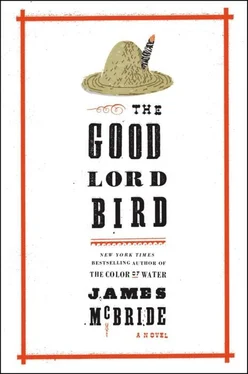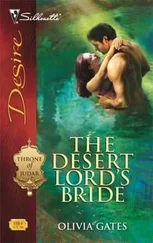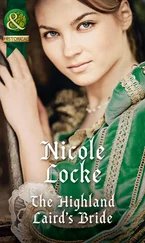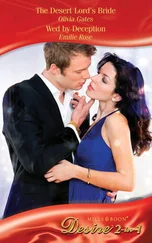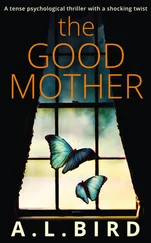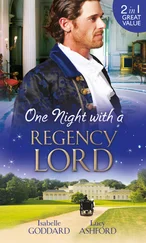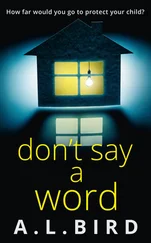The Old Man knowed he was defeated, but couldn’t stand it. He squeezed off one more blast from his seven-shooter, turned to run, and as he did, a cannon volley whipped through the tree line and got him. He was hit square in the back and went down like a rag doll, knocked clean off the ridge and back into the bank. He rolled off the ridge down to the river’s edge and didn’t move. He was done.
Dead.
He weren’t dead, though, only stunned, for that ball had spent itself before it got to him. It plunked a hole in his coat and pierced the skin of his back and lost juice right as it got to him. The Old Man’s skin was thicker than a mule’s ass, and while that ball drawed blood, it didn’t go deep. He jumped up quick as you can tell it, but the sight of him falling off that ridge toward the water drawed a cheer from the Missourians at the top of the bank who smelled red meat but couldn’t see him at the water’s edge, and several jumped down to the bank after him, only to find the Old Man waiting with that seven-shooter which was still dry and loaded. He busted a cap into the face of the first man, cracked the skull of the second man with the butt of that thing—that gun is heavy as the dickens—and sent a third to his Maker with his broadsword just as easy as you please. A fourth feller ran down toward him, and when the poor bastard got over the ridge and seen the Old Man still living, he tried to stop hisself and scramble back to safety. But Owen had scrambled back to the bank to help his Pa and busted a shot at him and blowed out his spark.
It was just them two going at it close, and the sight of them two fighting off rebels attacking ’em from all sides now caused a round of cursing and swearing from the Free Staters who made it to the other side of the river, and they blowed several rounds into the rest of the charging Missourians, who was at the top of the ridge near the tree line. The rebels scattered and fell back. This gived the Old Man and Owen time to get across the river.
I had never seen the Old Man retreat before. He seemed a queer figure there in the river, in a broad straw hat and linen duster, his coattails flung out behind him, arms outspread on the water, as he waded over, a revolver held high in each hand. He climbed onto the opposite bank, out of range of the rebels now, mounted atop his horse, and scrambled his horse up the bank to where I was, followed by the other men, all of ’em joining me on the knoll.
From that knoll you could see Osawatomie clear, the town blazing brightly in the afternoon sun, every house burning to the ground, and every Free Stater stupid enough to hang ’round and try to put out the fire eating his house getting shot to shit by Reverend Martin and his men, who were drunk, laughing and whooping it up. They defeated the Old Man and hollered it all across Osawatomie, several shouting that he was dead and claiming to be the one who done it, whooping that they’d burned his house to the ground, which they’d done.
Most of the other Free Staters who survived had taken the tall timber once they got across the creek to our side. Only the Old Man and his sons remained on our side, watching the rebels celebrate: Jason, John, Salmon, the two younger ones Watson and Oliver, who had joined us, Owen course, all of ’em atop their mounts, staring angrily at the town, for their houses was burning up, too.
But the Old Man didn’t look at it once. When he reached the knoll, he slowly paced his horse back to Frederick and got off it. The rest followed him over.
Fred was where we left him, his little cap atop his head, the Good Lord Bird atop his chest. The Old Man stood over him.
“I should’a come out of hiding to help him,” I said, “but I don’t know how to shoot.”
“And shoot you should not,” the Old Man said. “For you is a girl soon to be a woman. You was a friend to Fred. He was fond of you. And for that I am grateful to you, Little Onion.”
But he might as well have been talking to a hole in the ground, for even as he spoke, his mind was somewhere else. He knelt over Fred. He looked at him several minutes, and for a moment, the old gray eyes softened and it seemed like a thousand years had washed over the Old Man’s face. He sighed, gently pulled Fred’s cap off his head, pulled a feather off the Good Lord Bird, and rose. He turned and stared at the town grimly, burning in the afternoon sun. He could see it plain, the smoke spiraling up, the Free Staters fleeing, the rebels firing at them, whooping and hollering.
“God sees it,” he said.
Jason came up to him. “Father, let’s bury Frederick and let the federals have the fight. They’ll be here soon enough. I don’t want to fight no more. My brothers and me, we had enough. We’re decided on it.”
The Old Man was silent. He fingered Fred’s cap and eyed his sons.
“Is that how you want it, Owen?”
Owen, setting atop his horse, looked away.
“And Salmon. And John?”
Six of his sons was there: Salmon, John, Jason, Owen, and the young ones, Watson and Oliver, plus their kin, the Thompson brothers, two of them. They all looked down. They was spent. Not a one of ’em spoke up. Didn’t say a word.
“Take Little Onion with you,” he said. He tossed Fred’s cap into his saddlebag and made ready to get on his horse.
“We’ve done enough for the cause, Father,” Jason said. “Stay with us and help us rebuild. The federals will find Rev. Martin. They’d catch him and put him in jail, try him for Fred’s killing.”
The Old Man ignored him and mounted his horse, then stared out at the land before him. He seemed to be someplace else in his head. “This is beautiful country,” he said. He hold out the feather from the Good Lord Bird. “And this is this beautiful omen that Frederick left behind. It’s a sign from God.” He stuck it in his weathered, beaten straw cap. It stuck straight up in the air. He looked ludicrous.
“Father, you are not hearing me,” Jason said. “We are done! Stay with us. Help us rebuild.”
The Old Man stretched his lips in a crazy fashion. It weren’t a real smile, but as close as he could come. Never saw him out and out smile up to that point. It didn’t fit his face. Stretching them wrinkles horizontal gived the impression of him being plumb stark mad. Seemed like his peanut had poked out the shell all the way. He was soaked. His jacket and pants, which was always dotted full of holes, was a mass of torn and ripped clothing. On his back was a bit of blood where he’d taken a grape ball. He paid it no attention. “I have only a short time to live,” he said, “and I will die fighting for this cause. There will be no more peace in this land until slavery is done. I will give these slaveholders something to think about. I will carry this war into Africa. Stay here if you want. If you’re lucky, you’ll find a cause worth dying for. Even the rebels have that.”
He turned his horse ’round. “I have to go and pray and commingle with the Great Father of Justice upon whose blood we live. Bury Fred right. And take care of Little Onion.”
With that, he turned on his horse and rode off east. I wouldn’t see him again for two years.
PART II.
SLAVE DEEDS
(Missouri)
The brothers started haggling not two minutes after the Old Man departed. They stopped their wrangle long enough to bury Frederick atop a knoll that looked down on the town from across the river, plucking some of his Good Lord Bird feathers and giving them out to each of us. Then they hanked among themselves some more about who said this or that, and who shot who and what to do next. It was decided they’d split up and I’d be tagged up with Owen, though Owen weren’t particular about the idea. “I’m going to Iowa to court a young lady, and I can’t move fast with the Onion on me.”
Читать дальше
